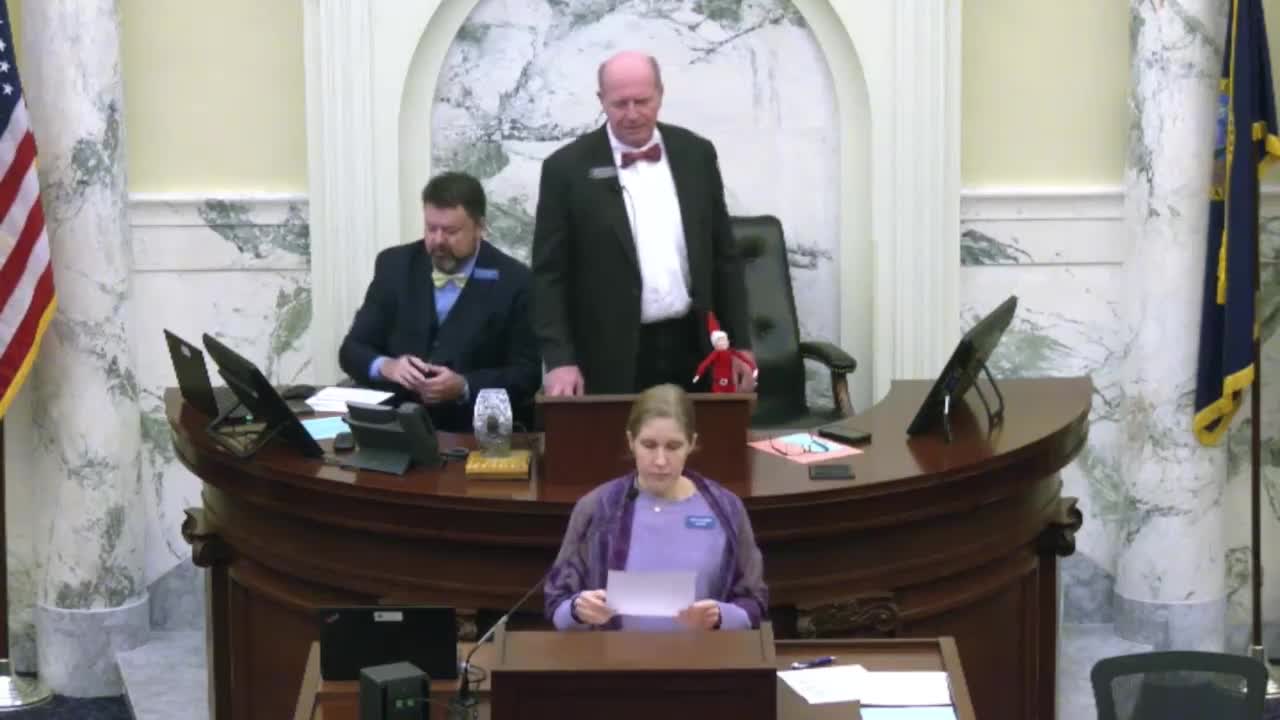Idaho House introduces bills on school safety, local-officer oversight and controlled-substance penalties
Get AI-powered insights, summaries, and transcripts
Subscribe
Summary
On Jan. 10, 2025, the Idaho House of Representatives received several bill introductions, including measures on school behavioral threat-assessment immunity, expanded attorney-general authority over local elected officers and changes to controlled-substances penalties; the measures were referred for printing and committee consideration.
BOISE, Idaho — The Idaho House of Representatives on Jan. 10, 2025, introduced a set of bills that would change procedures and penalties in schools, local governments and controlled‑substances law, and referred the measures to committees for printing and further review.
The Judiciary, Rules and Administration Committee presented House Bill 5, described as “an act relating to school safety” that would add a new section (described in the committee report as section 5349) to chapter 3, title 5, Idaho Code to establish provisions regarding immunity for behavioral threat assessment and management teams in schools and to declare an emergency and provide an effective date. The committee also presented House Bill 6, described as an act “relating to city and county officers,” which the committee summary states would remove a provision regarding violations of the open‑meetings law and add a new section (described as 5238) to chapter 2, title 50, Idaho Code to authorize investigations and actions against city elected officers by the attorney general and to provide for related duties; the report described technical corrections and declared an emergency. House Bill 7 was presented as an act “relating to uniform controlled substances,” described in the committee report as amending section 372732 of the Idaho Code to provide a penalty, declaring an emergency and setting an effective date.
The committee report in the House record said the bills will be referred to the Judiciary, Rules and Administration Committee for printing. Earlier in the proceedings the House reported that House Bill 3 was referred to the Revenue and Taxation Committee and House Bill 4 was referred to the Commerce and Human Resources Committee (the committee reports gave the referrals but did not include floor debate on the bills themselves).
Separately, the House reported a companion measure, House Concurrent Resolution 2, filed for third reading; the committee description identified the resolution as relating to Boise State volleyball and said it will be placed on the third‑reading calendar.
No floor debate or recorded roll‑call votes on the substantive merits of these bills appeared in the Jan. 10 transcript; the action recorded on the floor was referral and filing for further committee consideration and printing. Next steps for each bill are committee printing, committee scheduling and any subsequent committee hearings or readings on the House floor.
Votes at a glance: the House did not record final passage votes on the introduced bills on Jan. 10. Procedural floor actions that carried recorded motions included approval of the House journal (motion moved by Representative Skog and seconded by Representative Gannon; the motion passed by voice vote) and an adjournment motion (moved and seconded on the floor and passed by voice vote).
